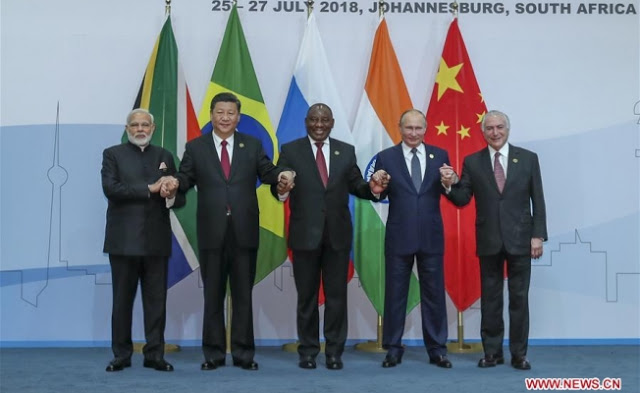Business leaders joined UN Secretary-General António Guterres on Tuesday, to step up delivery of critical investments for a ‘sustainable, net zero, resilient and equitable world’.
The Global Investors for Sustainable Development (GISD) Alliance, which brings together 30 business giants worth an estimated $16 trillion dollars, met Guterres in New York and outlined concrete actions for the future.
Since October 2019, when the secretary-general convened the GISD Alliance, its CEOs and other top executives had been working with the UN and other partners to develop guidelines and products that align the existing finance and investment ecosystem with the Sustainable Development Goals (SDGs).
Acknowledging the “great responsibility” facing private sector leaders, Guterres said that the goals were clear.
The goals, according to him, are to “build a sustainable, net zero, resilient, and equitable world, to better align investments with sustainable development, and to act on their commitments, with credible timelines, targets and plans.
Since its creation, the GISD Alliance had developed standards and tools aimed at moving trillions of dollars to bridge the gap in financing, and to realise the UN’s 2030 Agenda.
The group works through increasing the available supply of long-term investment for sustainable development, realising SDG investment opportunities in developing countries, and enhancing the impact of private investment for sustainable development.
“I count on the members of the GISD Alliance to catalyze greater investment for developing countries and make net zero and sustainability the core of everyone’s policies and business models,” Guterres said.
GISD also sprang into action to address crises, including in 2020, by developing a COVID Bond Call to Action. The call prompted companies and governments to use innovative social bonds to respond to the pandemic, contributing to a sustainable economic recovery.
In 2021, GISD published its latest investment tool designed to align financing with the SDGs. Through a set of sector-specific metrics, it proposes to accurately measure the impact of companies on sustainable development targets and provide investors with key insights.
This is an important step, since previous reporting frameworks largely focused on measuring the impact of company operations on sustainability across whole industries.
According to Leila Fourie, GISD co-chair and group CEO of the Johannesburg Stock Exchange, “industry-agnostic performance indicators, while useful, tend to fall short in capturing the full sector-specific impact of products and services that companies produce.”
In the coming months, GISD will launch a net-zero Exchange Traded Fund (ETF) and a blended finance fund, helping the “move toward creating real life opportunities to finance the SDGs,” said Oliver Bäte, GISD co-chair and CEO of Allianz. GISD is also working with the G20 Sustainable Finance Working Group, the COP26 climate conference bureau and G7 leading economies, as well as engaging with the multilateral development banks, to develop actionable recommendations on ways to scale up private investment for sustainable development




